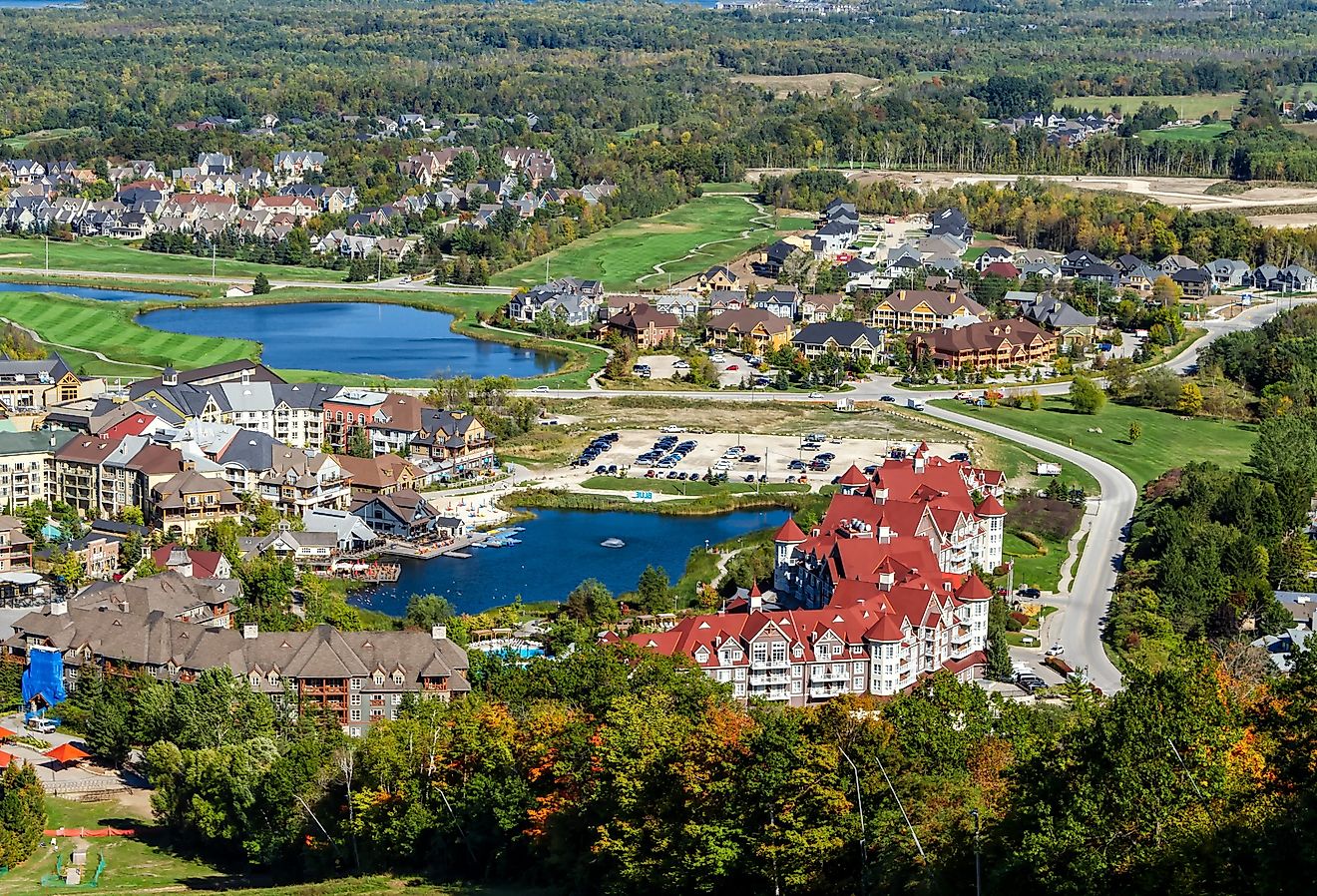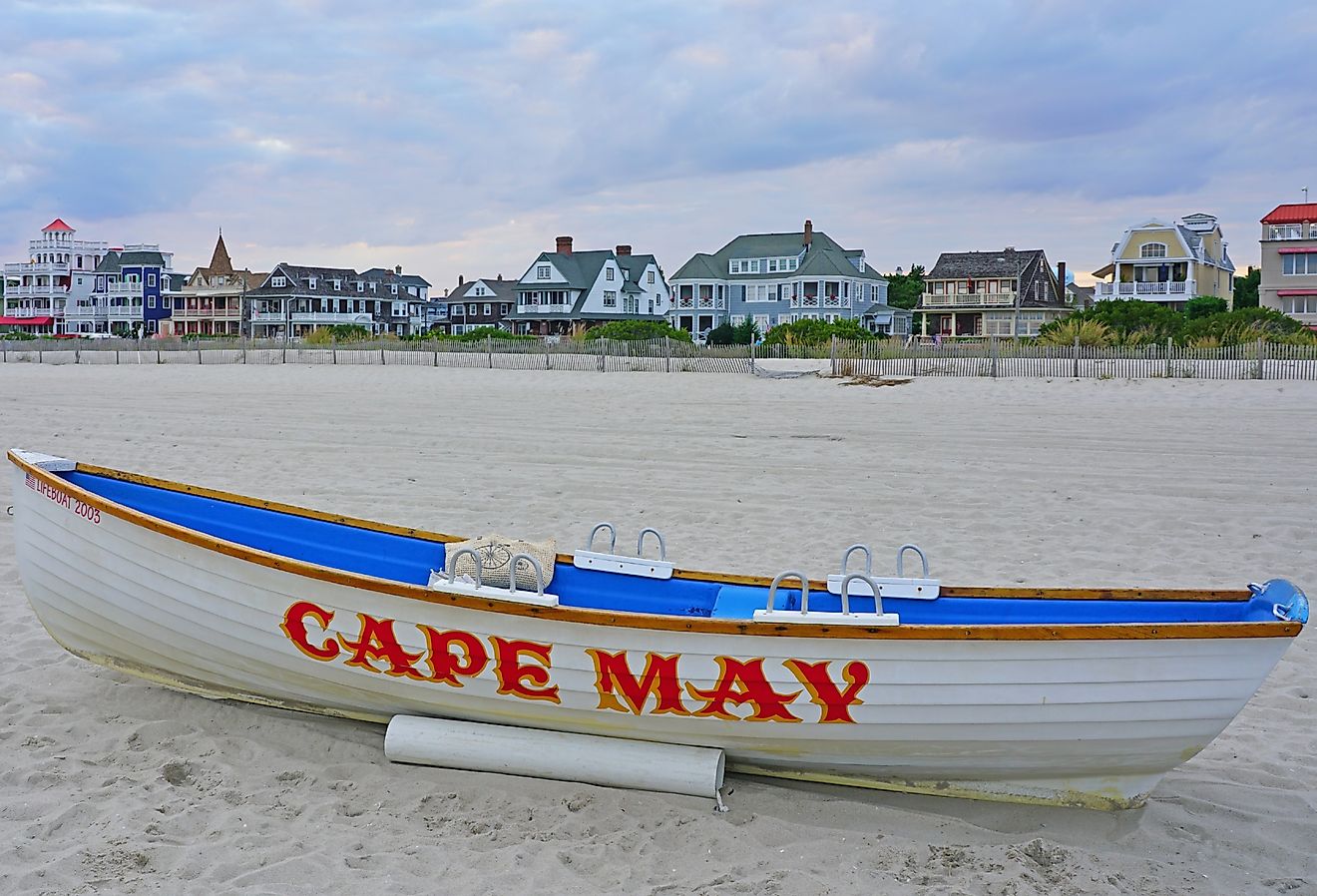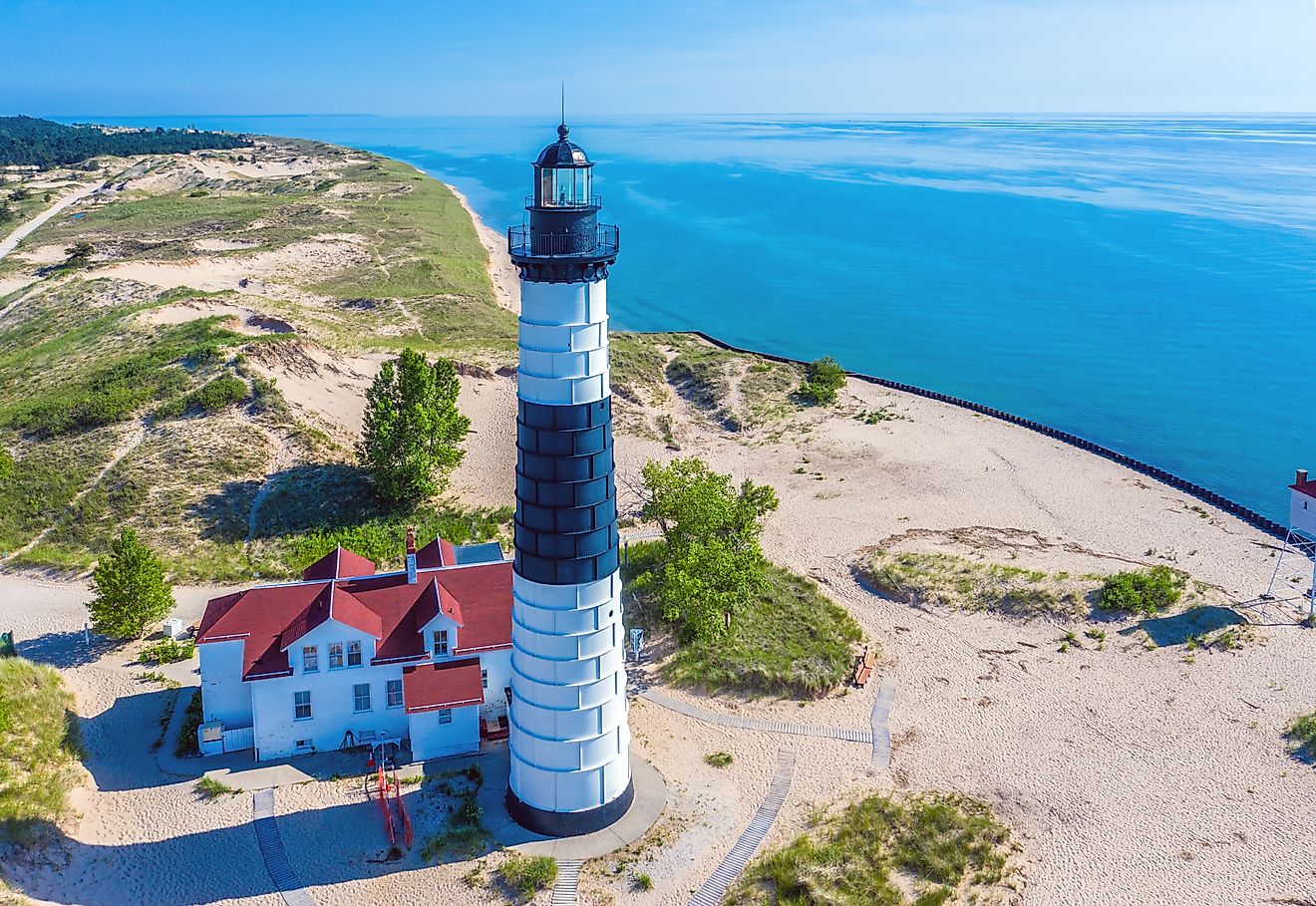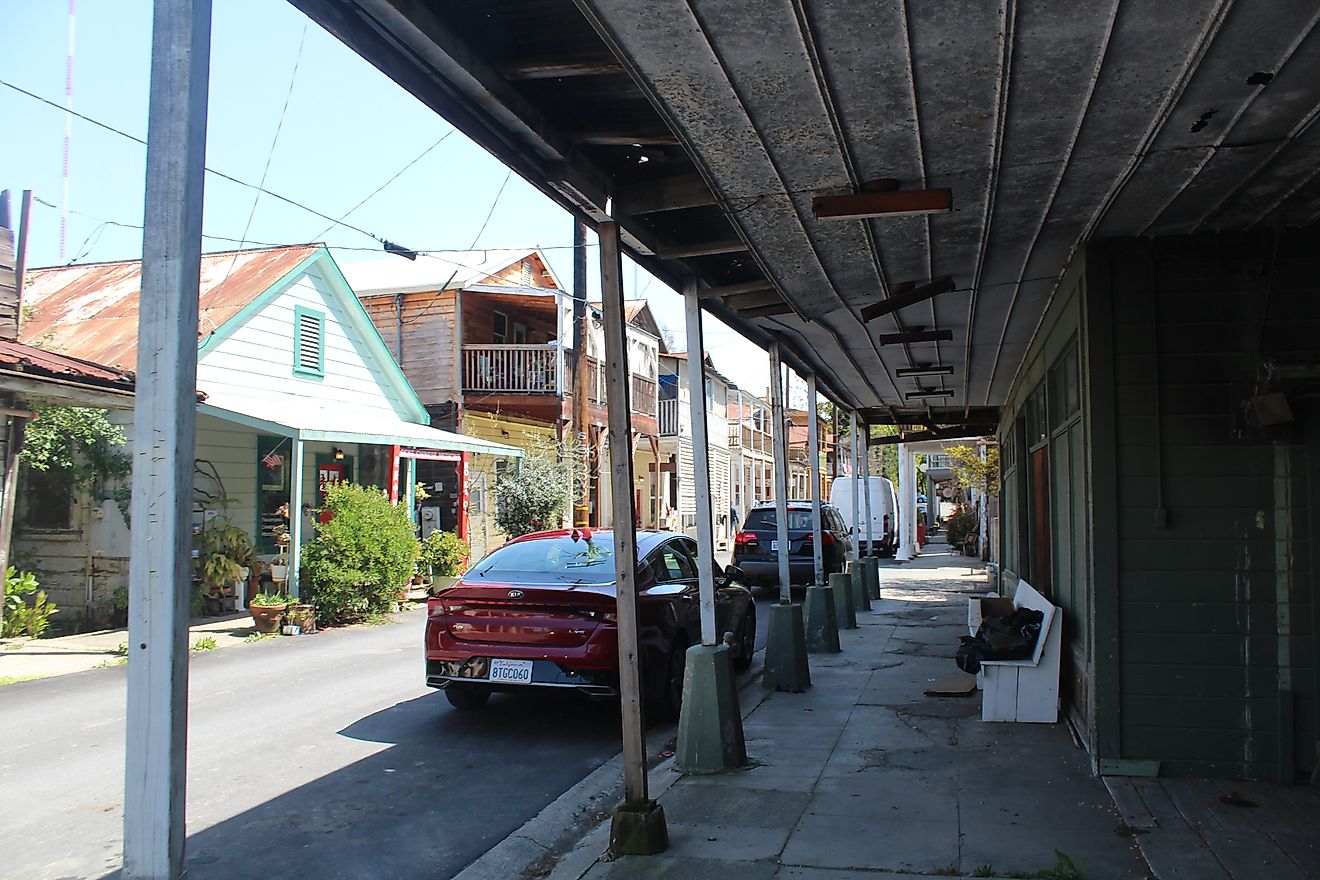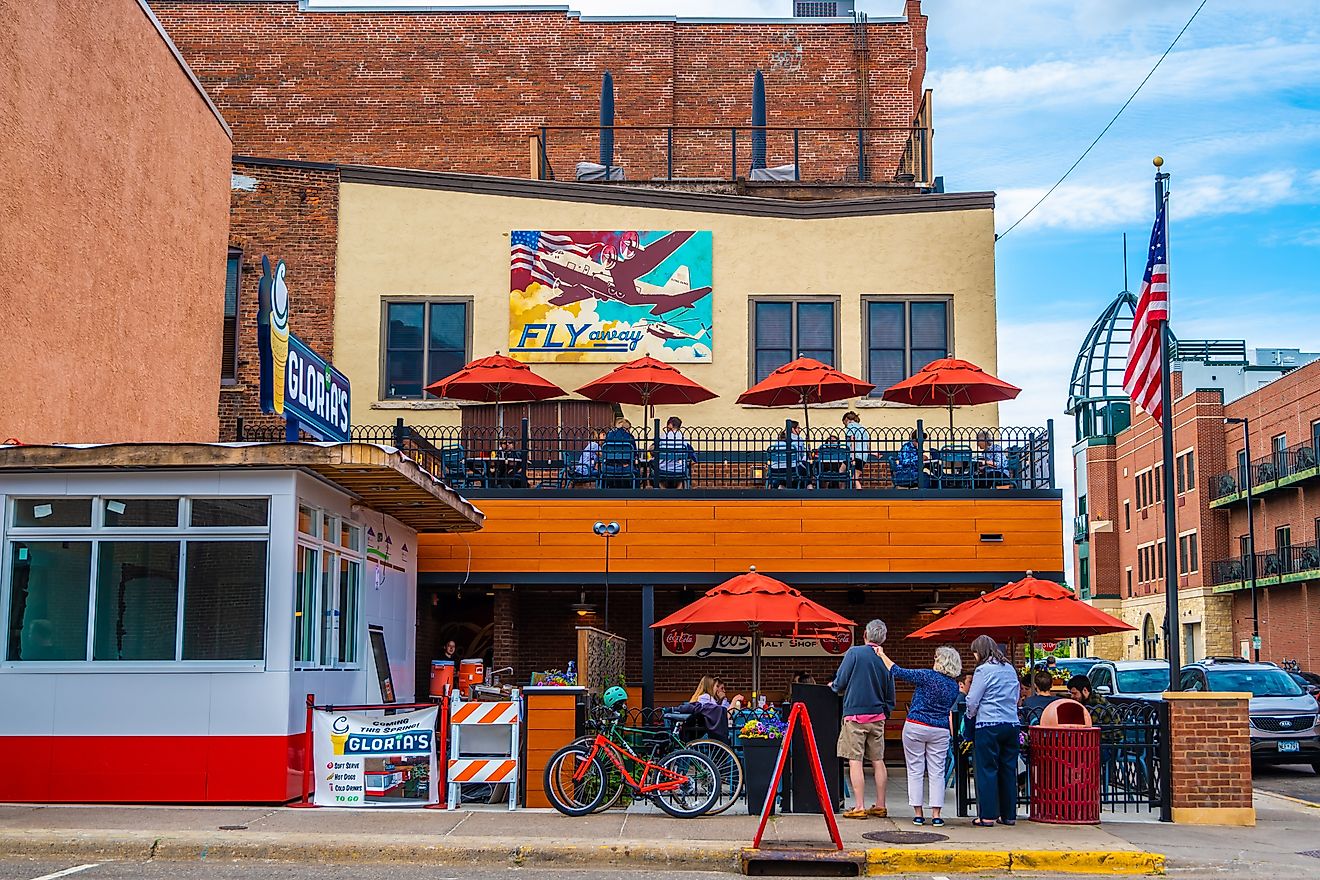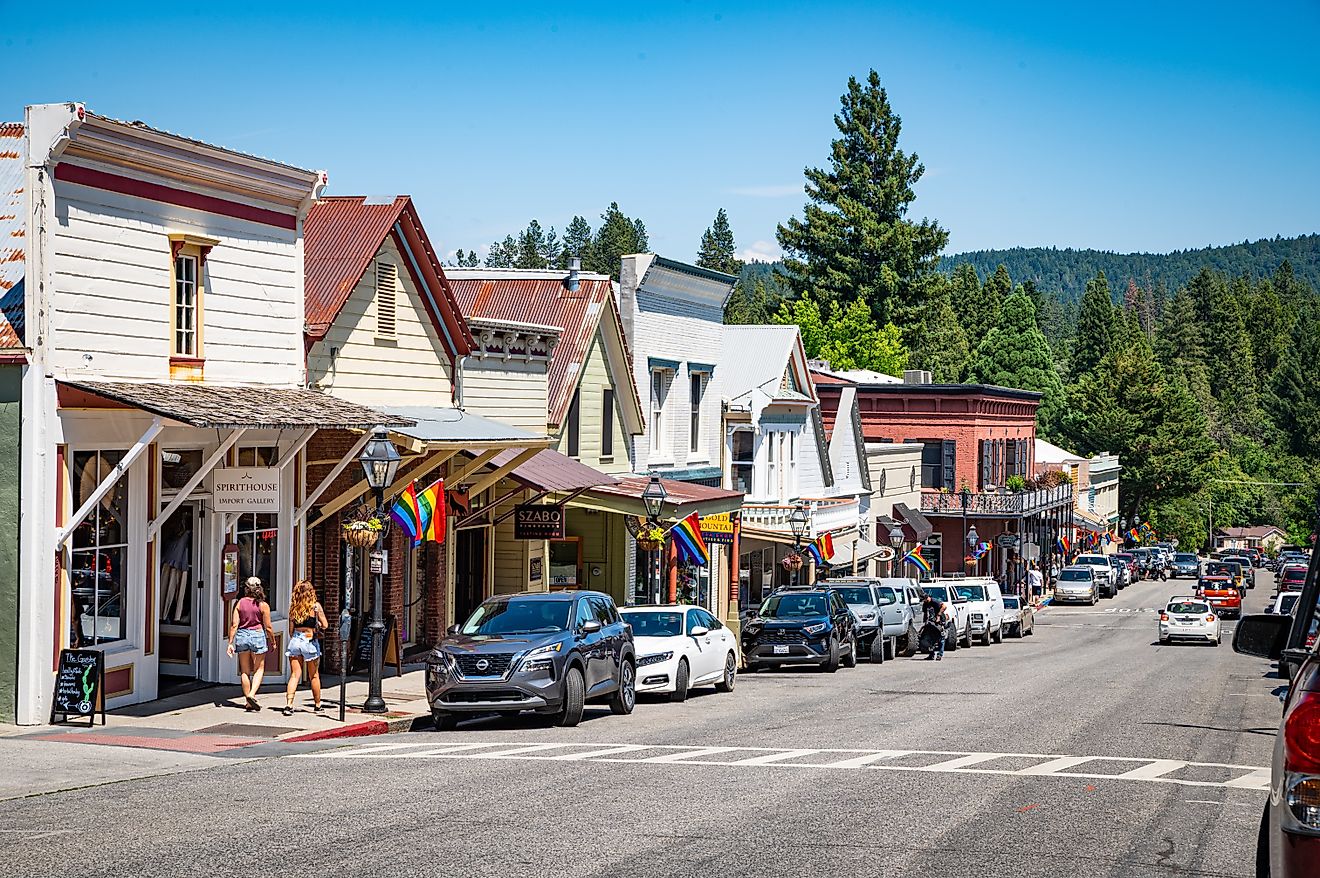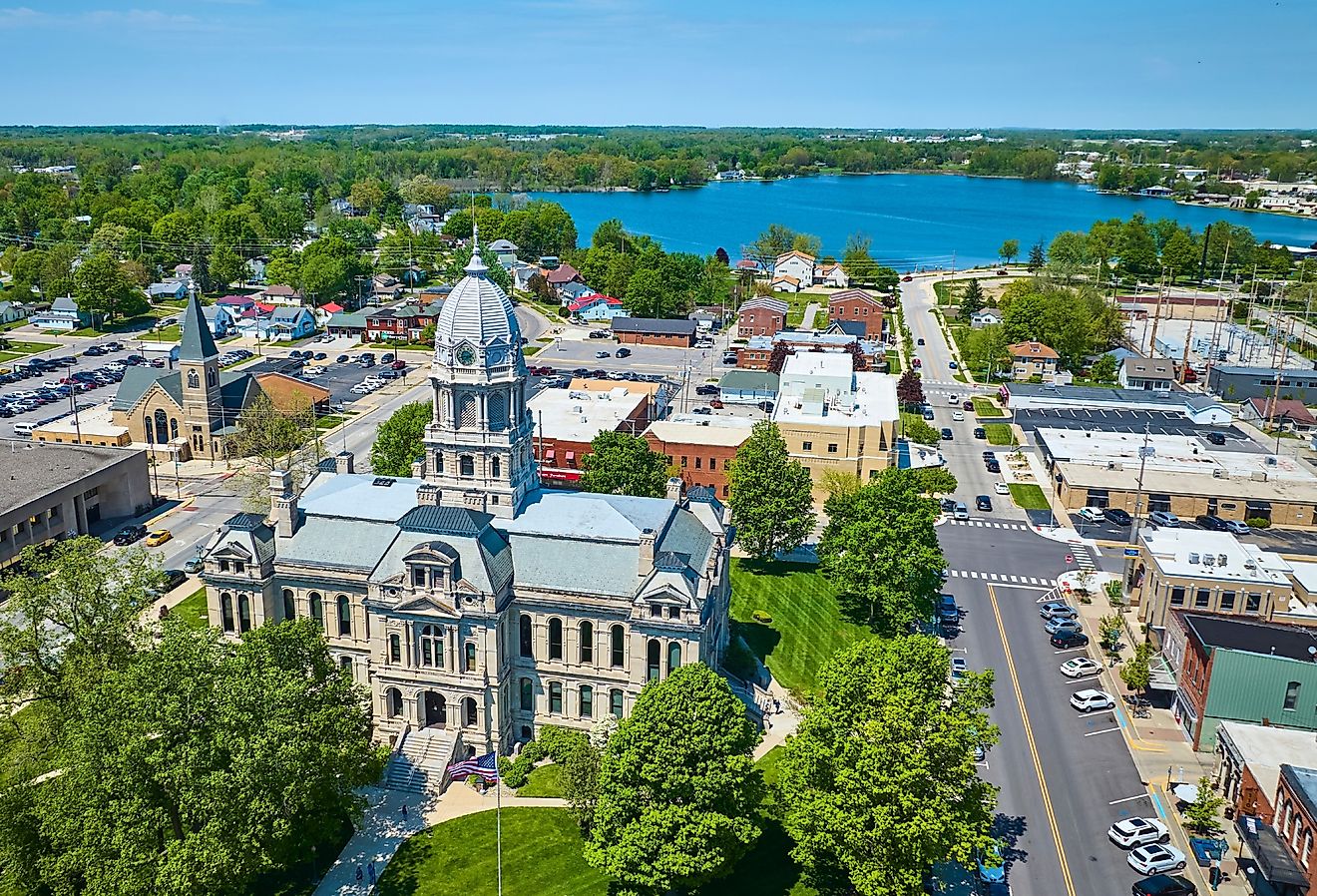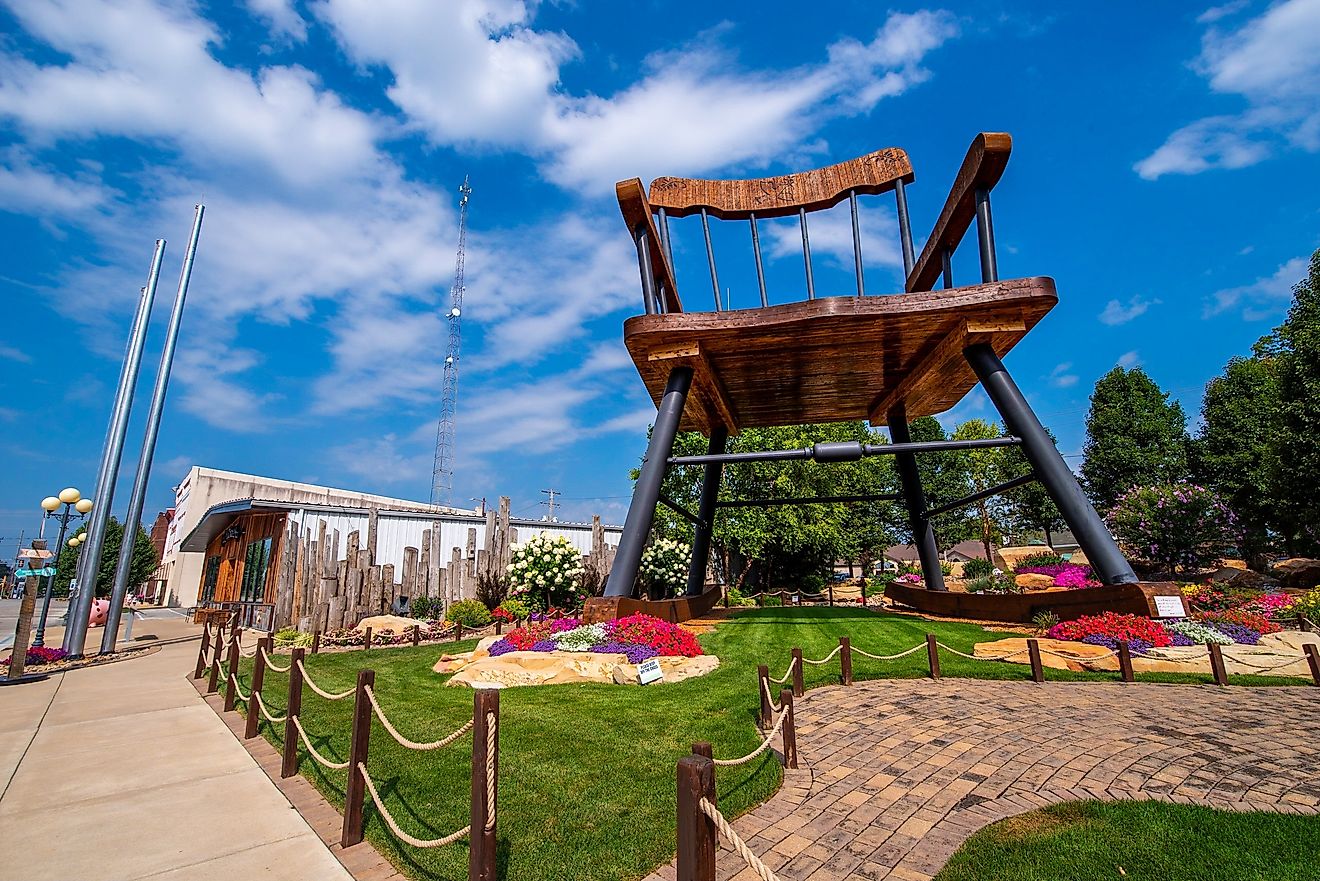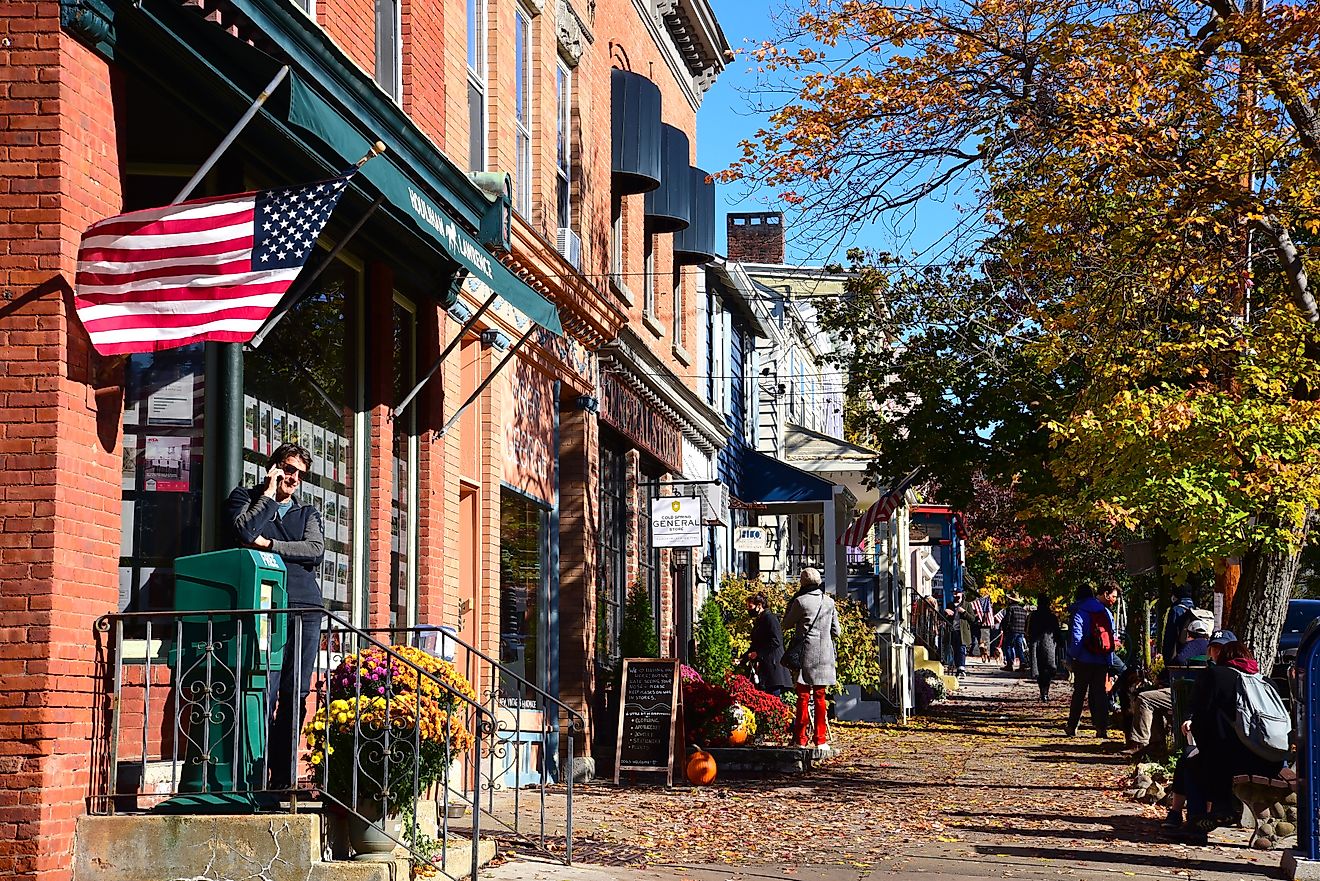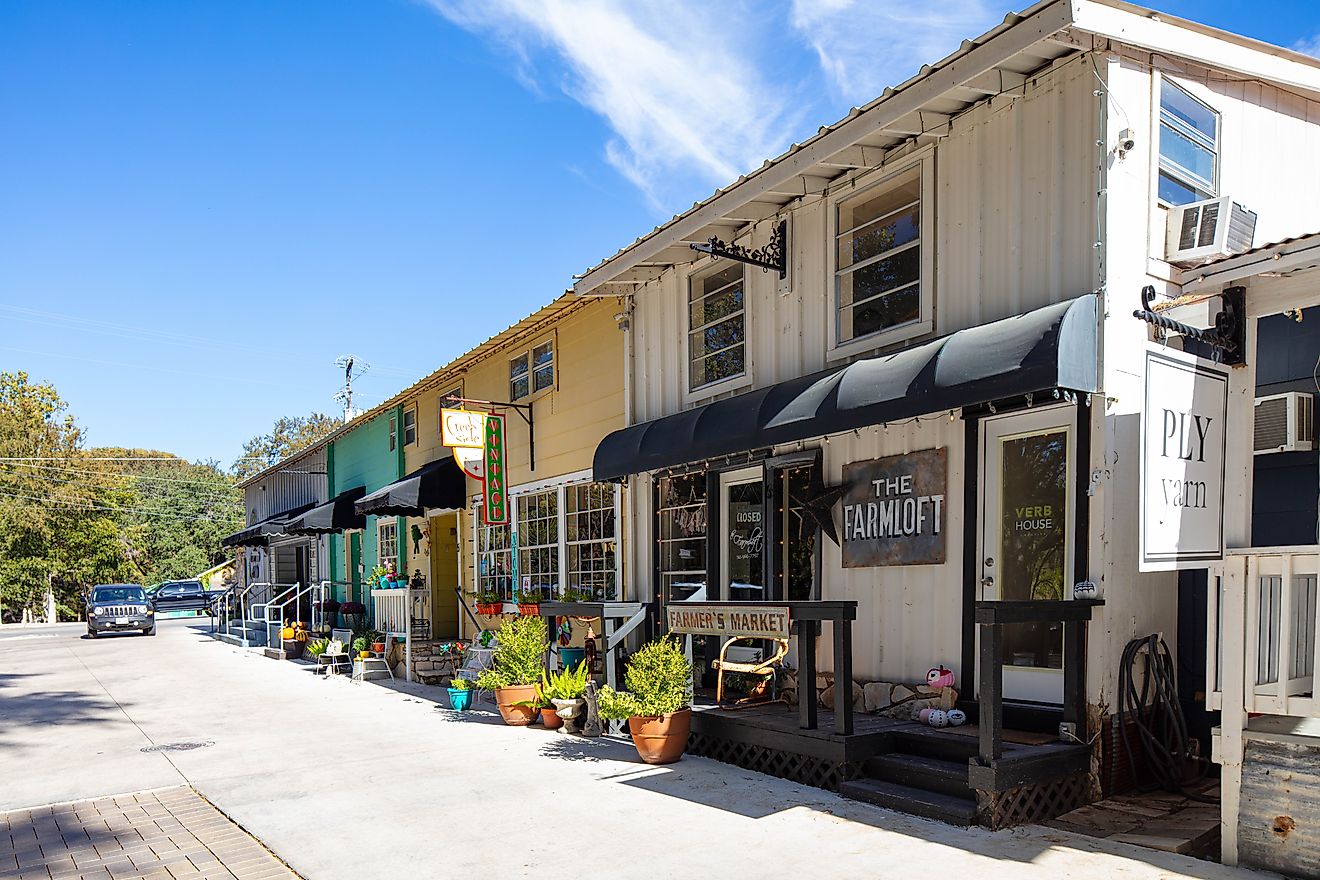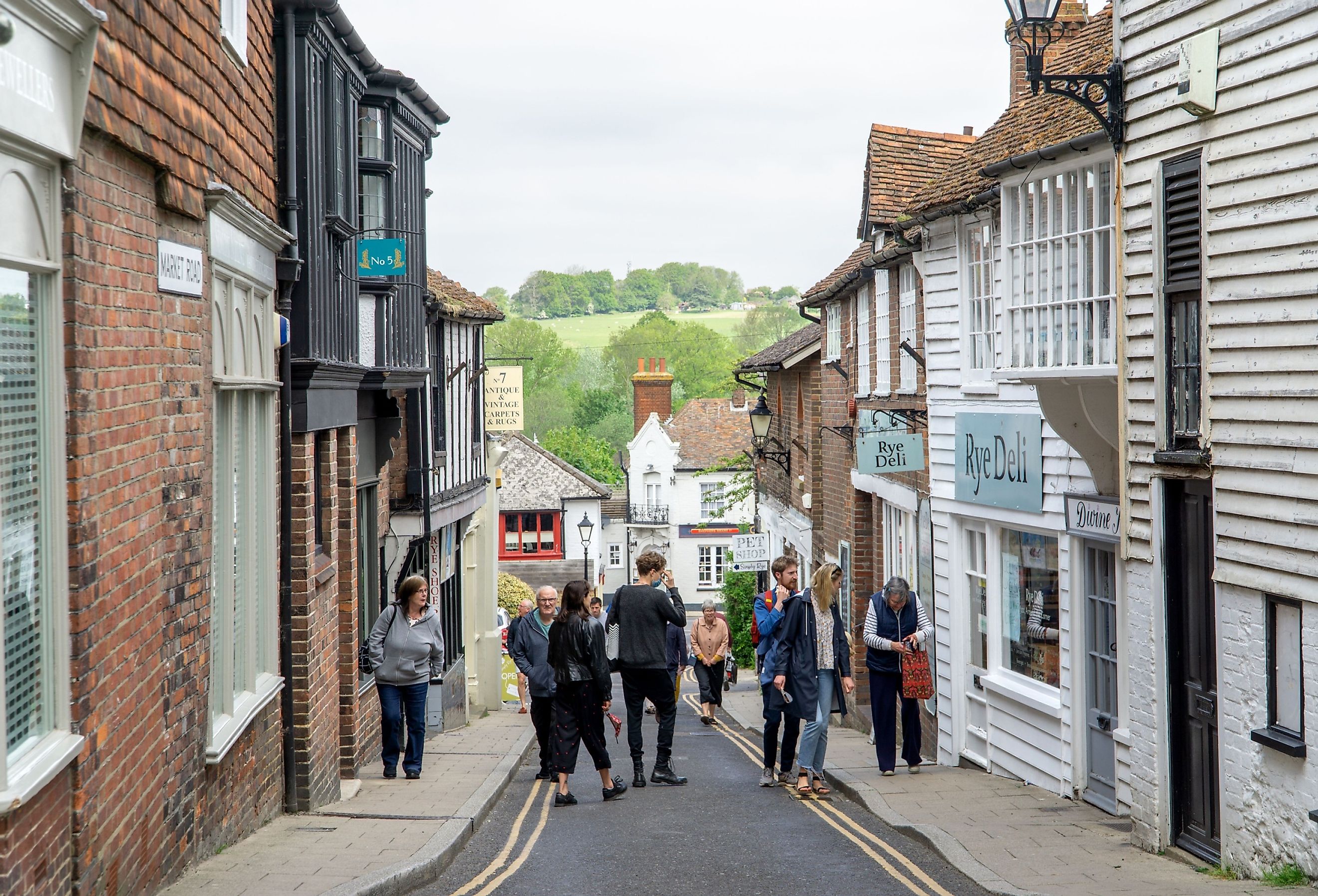
These Towns in England Have the Best Main Streets
Though geographically smaller than many US states – it is approximately the size of Ohio – England’s population of 55 million people, combined with its long, rich history, has ensured there is no end of great places to visit in this beautiful but diminutive country.
Wherever you go in England, curious travelers are greeted by some of the Western world’s most picturesque small towns, each boasting attractive downtown areas just begging to be explored. Referred to in England as the “High Street,” these main street areas have seen countless centuries of human activity, from ancient Roman trade routes to their importance as medieval marketplaces. Find out more about towns in England that have the best main streets.
Castle Combe, Wiltshire
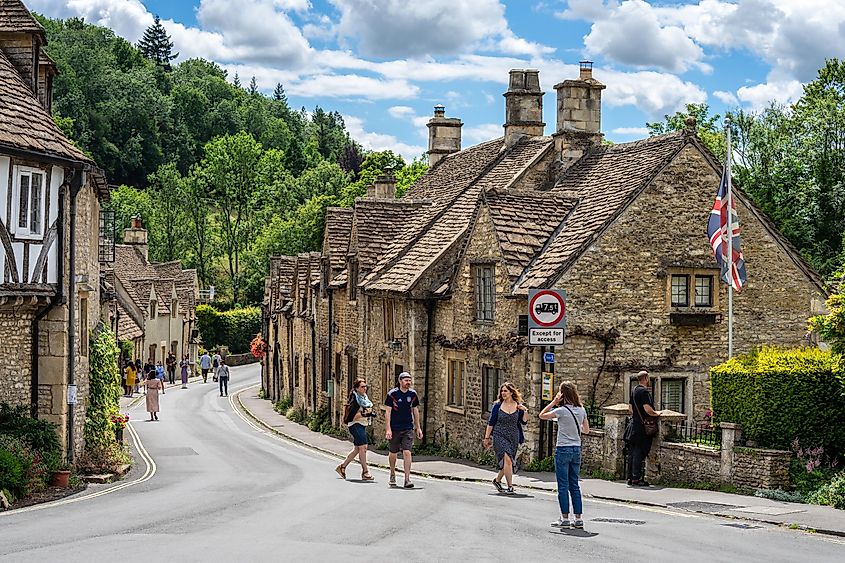
For anyone who’s ever visited England’s beautiful Cotswolds region, it should come as no surprise to find Castle Combe in the #1 spot when it comes to attractive old main streets. Dubbed "the prettiest town in England," this quaint community’s well-preserved Cotswold stone houses and narrow laneways are postcard-perfect, with little or no intrusion from anything more technologically advanced than the occasional tractor.
While Castle Combe’s top attractions may seem modest compared to the more dramatic points of interest seen in other towns across England, main street highlights include the ancient water pump in the town center, an old stone market cross, and St. Andrew's Church, home to the medieval Castle Combe Clock, don’t be fooled. Simply called “The Street,” the main drag here is a sought-after location for film and television shows.
Rye, East Sussex
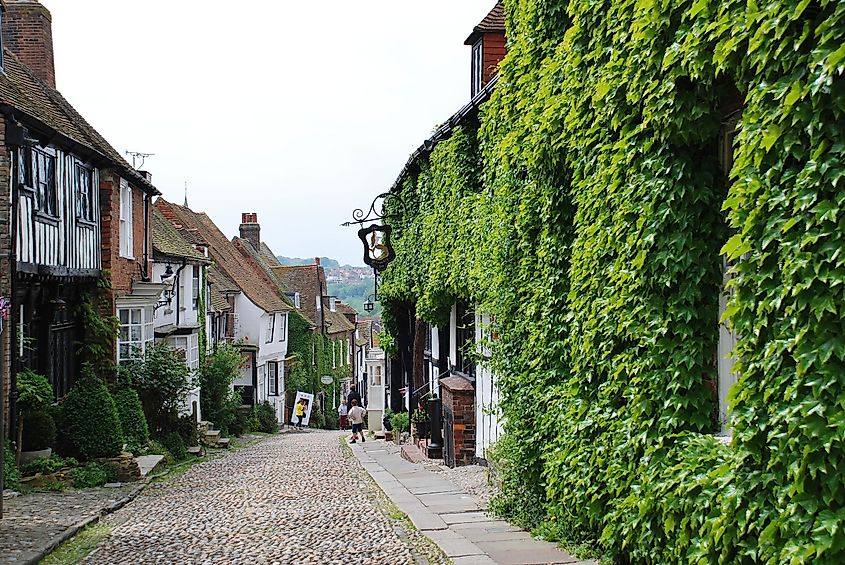
A favorite of Monty Python star Graham Chapman who filmed the pirate spoof, Yellowbeard, here, the picturesque town of Rye captivates visitors with its cobblestone streets and historic charm. In addition to its pretty High Street, Mermaid Street is a must-explore for its well-preserved 15th-century timber-framed buildings, including the historic Mermaid Inn, in business as a pub for over 600 years.
In addition to its eclectic shops and cozy tea rooms, Rye’s High Street leads to the historic Landgate at the east end of town, a centuries-old gatehouse that’s great for a selfie. Other nearby attractions include Rye Castle Museum Ypres Tower, and the Gun Garden with its old cannons dating from the Napoleonic wars.
Windsor, Berkshire
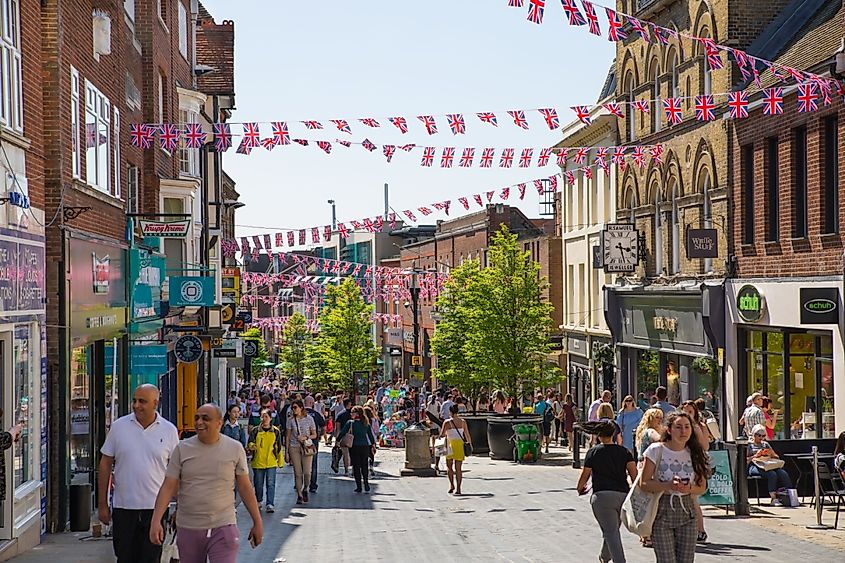
Credited with being the inspiration for the surname of the Royal Family, the market town of Windsor is famous as the home of Windsor Castle, the oldest and largest inhabited castle in the world and a favored residence of the British monarchy. This magnificent royal palace can (and should) be toured, with additional time required to explore its vast park-like grounds.
Exploring the downtown along Windsor High Street is time well spent, especially if the beautiful Windsor Great Park is included in your itinerary. Encompassing the famous Long Walk, the spectacular nearly three-mile-long “driveway” connects Windsor Castle to a massive statue of King George III on horseback.
Clovelly, North Devon
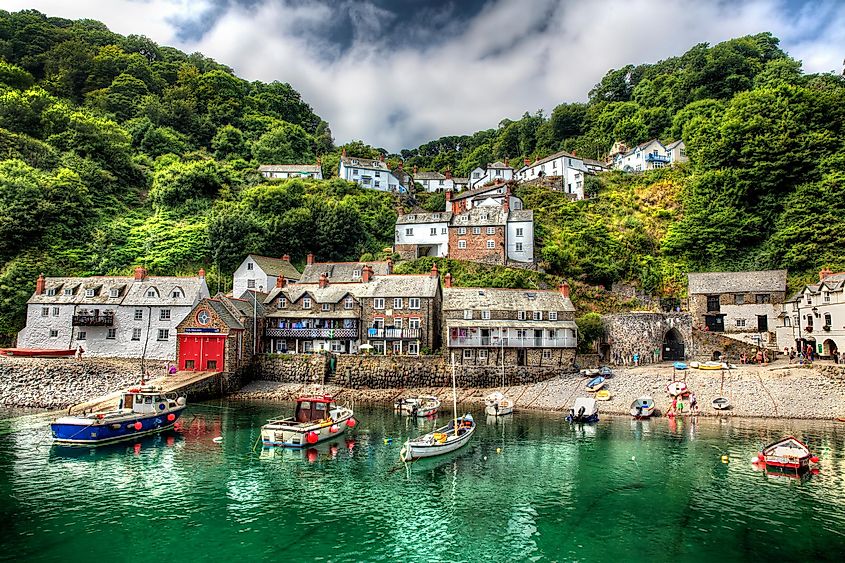
Clovelly undoubtedly boasts one of the prettiest settings of any small town in England, as well as one of the shortest and steepest High Streets. Running downhill past the town’s white-washed cottages and shops to Clovelly Harbour, this mostly traffic-free street is a delight to explore. After walking the main street and harbor area, pop in for lunch at the historic Red Lion Hotel; better still, book a stay at this lovely 18th-century hotel.
Other highlights include a lesson in local history and culture at the Kingsley Museum and Fisherman's Cottage, as well as exploring the beautiful Clovelly Court Gardens. Clovelly Beach is another must-do.
St Ives, Cornwall

The Cornish seaside town of St Ives overlooking the Celtic Sea is well worth visiting for its stunning beaches, some of which are increasingly popular among surfers. Whether you are here to surf, swim, or sunbathe, Porthmeor Beach is the best spot for a little fun in the sun. While there is no single “main street” in St. Ives in the traditional sense, much of the downtown action revolves around Digey and Fore Streets which lead past boutique shops and art galleries down to Wharf Road and the picturesque St. Ives Harbour.
Other cultural things to do in St. Ives include Tate St. Ives, part of the famous Tate group of art galleries based in London; and the Barbara Hepworth Museum and Sculpture Garden with its preserved studio paying homage to one of the UK’s leading sculptors.
Warwick, Warwickshire
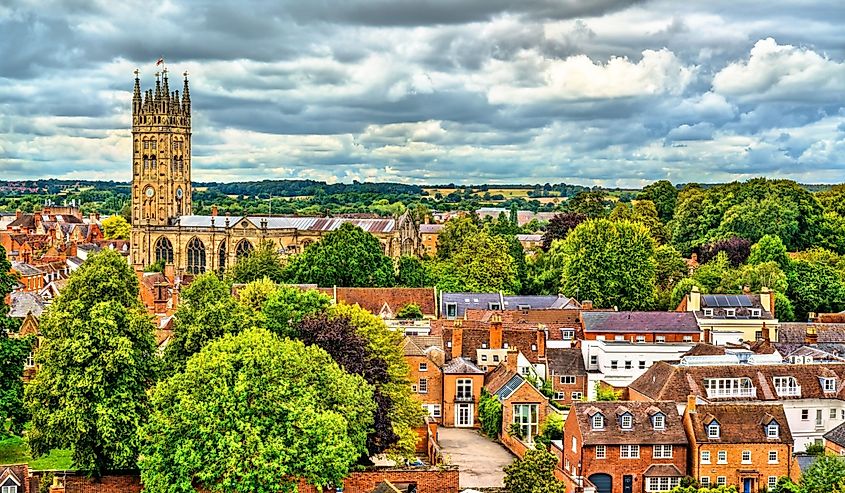
The county town of Warwickshire, Warwick’s picturesque High Street, has so much going for it that it regularly attracts crowds of visitors. Running parallel with the scenic River Avon, which is fun to explore via a rental paddleboat or kayak, the town’s High Street not only features plenty of fun shopping and dining opportunities but also several important attractions. Topping the list is the medieval Lord Leycester Hospital, a living museum dating from the 14th century, and the Warwickshire Yeomanry Museum, a military museum with weapons and displays relating to this famous British army regiment.
The real star of the show, though, is one of the country's oldest fortresses, Warwick Castle. Just a few minutes walk from the High Street, this well-preserved fortress offers a glimpse into England's past with its grandeur and themed attractions like the Horrible Histories maze, as well as re-enactments of medieval fairs and jousting tournaments.
Painswick, Gloucestershire
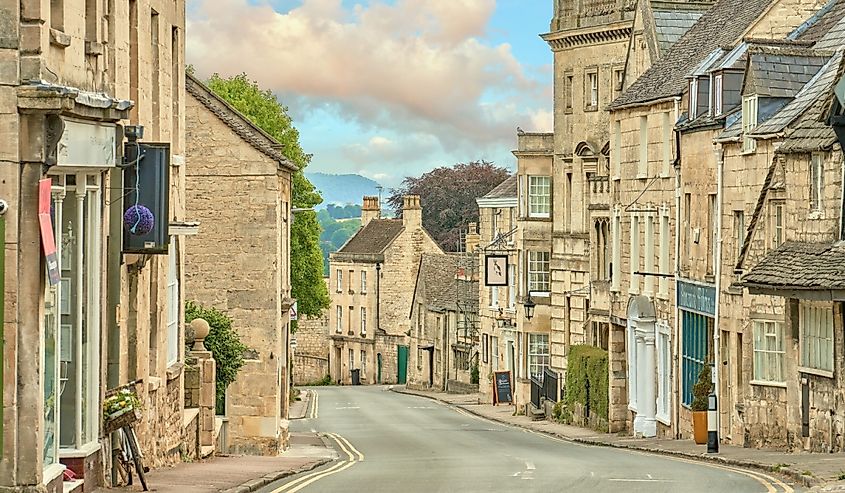
Painswick is another great destination to visit for those seeking a taste of authentic rural England. Known as the "Queen of the Cotswolds" for its idyllic village-like feel, the town’s main drag, New Street, is where you’ll find St. Mary's Churchyard, famed for its 99 yew trees, along with some great places to stay including the historic Falcon Inn.
Other must-see attractions in Painswick include The Rococo Gardens, just outside the town and worth visiting for their stunning views; and the Cotswold Way, a 102-mile long footpath that passes through the town and connects the city of Bath with Chipping Campden.
With some of its most interesting communities having been established during the medieval era along traditional trade roots, it is little wonder that the best of England’s small towns feature attractive old main streets. However, exploring these seven enchanting towns across England reveals much more than just picturesque main streets; it provides an opportunity to experience the country’s history, its fascinating culture, as well as its natural beauty. From Castle Combe's storybook charm to the seaside community of St. Ives, each of this seven town offers a journey through England's rich heritage.
